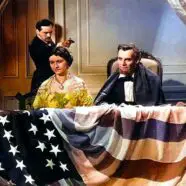Abraham Lincoln Assassinated
The Assassination of Abraham Lincoln: A Turning Point in Black History on April 15, 1865
Introduction
April 15, 1865, marks a dark day in American history, as President Abraham Lincoln was assassinated at Ford’s Theatre in Washington, D.C. Lincoln’s untimely death had a profound impact on the nation and particularly on the African American community, as he had been a staunch advocate for the abolition of slavery and the pursuit of civil rights. This article will delve into the events surrounding Lincoln’s assassination and its lasting effects on Black history and the struggle for racial equality in the United States.
Abraham Lincoln: A Champion for Emancipation
President Abraham Lincoln was a key figure in the fight to end slavery in the United States. He issued the Emancipation Proclamation in 1863, which declared that all enslaved people in Confederate states were to be set free. Furthermore, he was instrumental in the passage of the 13th Amendment, which abolished slavery throughout the country. His dedication to the cause of freedom and civil rights for African Americans made his assassination a monumental turning point in Black history.
The Events of April 15, 1865
On the evening of April 14, 1865, President Lincoln attended a performance at Ford’s Theatre, accompanied by his wife and guests. During the play, Confederate sympathizer John Wilkes Booth slipped into the presidential box and shot Lincoln in the back of the head. The President was carried across the street to the Petersen House, where he died the following day, April 15.
John Wilkes Booth and the Aftermath of the Assassination
John Wilkes Booth was a Confederate sympathizer and actor who despised Lincoln’s efforts to abolish slavery and unite the country after the Civil War. He believed that by assassinating the President, he could avenge the Confederacy and preserve the institution of slavery. However, his actions only served to further unite the country against the ideas he supported.
Following the assassination, the manhunt for Booth and his co-conspirators began. Booth was tracked down and killed on April 26, while the remaining conspirators were captured and later executed.
The Impact on African American History and Civil Rights
The assassination of President Lincoln dealt a severe blow to the African American community and the fight for civil rights. Lincoln’s successor, Andrew Johnson, lacked the same commitment to racial equality and the full implementation of civil rights for freed slaves. As a result, the Reconstruction era that followed the Civil War was marked by a series of setbacks and challenges in the struggle for equality and justice.
Despite these challenges, the assassination of Lincoln galvanized the African American community and their allies to continue the fight for civil rights. The memory of Lincoln’s commitment to freedom and equality served as a source of inspiration and motivation for generations of civil rights activists to come.
Conclusion
The assassination of President Abraham Lincoln on April 15, 1865, remains a tragic and pivotal moment in American and Black history. As a champion of emancipation and civil rights, Lincoln’s death impacted the African American community and the ongoing struggle for racial equality. Although his life was cut short, Lincoln’s legacy continues to inspire the pursuit of justice and the unwavering belief in a more equal and united society.
Bibliography
- Goodwin, D. K. (2005). Team of Rivals: The Political Genius of Abraham Lincoln. New York: Simon & Schuster.
- McPherson, J. M. (1988). Battle Cry of Freedom: The Civil War Era. New York: Oxford University Press.
- Swanson, J. L. (2006). Manhunt: The 12-Day Chase for Lincoln’s Killer. New York: William Morrow.
- White, R. (2016). American Ulysses: A Life of Ulysses S. Grant. New York: Random House.
- Winik, J. (2001). April 1865: The Month That Saved America. New York: HarperCollins.











